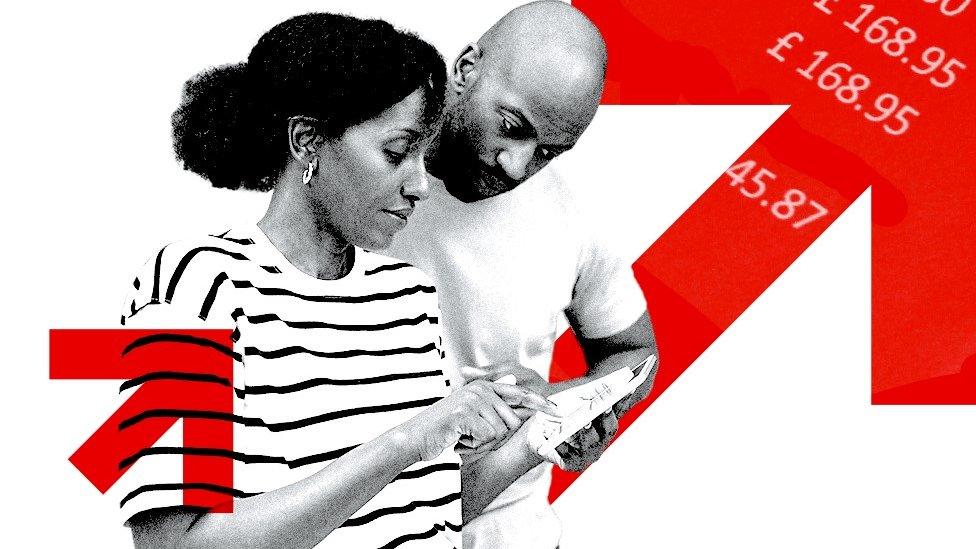Debt advisor referral fees banned by regulator
- Published
- comments

Debt advisors will no longer be allowed to receive a fee for referring people to debt solution companies.
The Financial Conduct Authority (FCA) banned the fees after finding some companies were putting them ahead of customers' best interests.
The average fee advisors received for an individual voluntary arrangement (IVAs) referral in 2019-2020 was £940.
A homeless client was recommended an IVA costing £6,000, but could have been debt-free for £90, the FCA found.
Citizens Advice said banning referral fees was "a big step towards tackling the way some firms prey on and profit from people struggling with debt".
The FCA said the ban applied to "debt packagers" which are regulated providers of debt advice, who typically do not offer debt solutions themselves. They will no longer be able to receive referral fees paid by debt solution companies.
For some people, there is little or no chance of paying off debts, and so they may have to consider some form of personal insolvency.
An individual voluntary arrangement (IVA) - is an agreement with creditors to pay debt.
The individual agrees to make regular affordable payments to an insolvency practitioner, who will divide this money between creditors. At the end of an IVA any unsecured debt left is written off.
Debt Relief Orders (DRO) freeze debt repayments and interest for 12 months if the money owed is less than £30,000 and the individual does not own a property. In that time, creditors cannot recover their money without the court's permission. At the end of the 12 months the debt is written off.
A typical IVA can cost anything up to £3,600 over a customer's lifetime while DROs can be less than £100.
'Incentivises bad advice'
The regulator said this business model "incentivises bad advice" and meant that companies recommend options that make them more money, rather than what is in the customer's best interest.
The FCA said it had seen evidence of debt packagers appearing to manipulate customers' details so that they meet the criteria for IVAs and using persuasive language to promote products without explaining the risks involved.
In some of the worst cases identified, the FCA found evidence of customers in financial hardship who were recommended solutions which caused more problems.
One customer was recommended an IVA by a debt packager when a different solution would have been more suitable. This cost them an extra £4,710 compared with a DRO and meant it would take five years longer to become debt free, the FCA said.
'Devastating'
Matthew Upton, acting executive director of advocacy and policy at Citizens Advice said: "Inaccurate or misleading advice from providers promoting Individual Voluntary Agreements can push people further into hardship and further away from a lasting solution to their problems."
He called on the government to bring all pre-IVA advice under the regulation of the FCA, "so that people can be sure it's the right solution for them".
Sheldon Mills, executive director of consumers and competition at the FCA, said: "Good quality debt advice is vital in helping people out of financial difficulty and poor advice can have a devastating impact on those who are already struggling."
Existing debt packager firms will need to develop a new way of doing business by October this year or face regulatory action, the regulator said.
The ban comes into effect immediately for new entrants to the debt packager market.
Related topics
- Published3 April 2024

- Published27 June 2024
